Imagine this: You’re a healthy person who doesn’t get sick often.
In 2012, your doctor advises you to get a follow-up colonoscopy, but then your spouse is diagnosed with cancer. Suddenly, you’re caring for him, your children, and maintaining a full-time job.
This was the reality for Nancy Wolters of Zeeland, Michigan.
“There’s nothing worse than seeing your loved one suffer,” she said. “My needs went by the wayside. I hadn’t even seen my primary care doctor in seven years.”
When she returned to see her primary care doctor, she was reminded to get her now-overdue colonoscopy as quickly as possible.
After having polyps removed during each of her three previous colonoscopies, Wolters had been instructed to get another scheduled in three to five years. But she didn’t think about it when the time came and went.
This time, however, she took action. It turned out to be critical timing.
“The 2019 colonoscopy showed a lot of dysplasia that required surgical removal,” Wolters explained.
She went to Sean Goodwin, MD, a surgeon with Spectrum Health Medical Group, for the procedure.
“Had she followed up in the recommended time, the polyp would have been smaller and likely not required surgery,” Dr. Goodwin said.
Typically, he said, small polyps can be removed during the colonoscopy procedure, but one of Wolters’ polyps had advanced to the point where it required surgery that resulted in the removal of 10 inches of her colon.
Dr. Goodwin advocates getting the recommended preventive checks and says that early diagnosis and treatment of conditions can prevent more serious ailments.
“Nobody likes to have a colonoscopy,” he said. “But it is important to take care of yourself by following the screening recommendation given by your physician. Even when you are feeling fine, it is important to follow these recommendations. A screening colonoscopy can find and remove polyps long before they have a chance to grow and transition into something more serious like a cancer. In addition, eating healthy, exercising and maintaining a healthy weight can help to keep your GI tract healthy.”
“A healthy lifestyle in general is good for disease prevention,” Dr. Goodwin added. “Choose foods that are high in fiber and low in fat, maintain a healthy weight with diet and exercise, and schedule regular checkups with your primary care doctor.”
After surgery, Wolters returned home in two days and has had no complications.
“It’s very easy to put yourself on the back burner,” Wolters said. “I realized I had to take care of myself so I could take care of my family. I’m glad I got in when I did.”
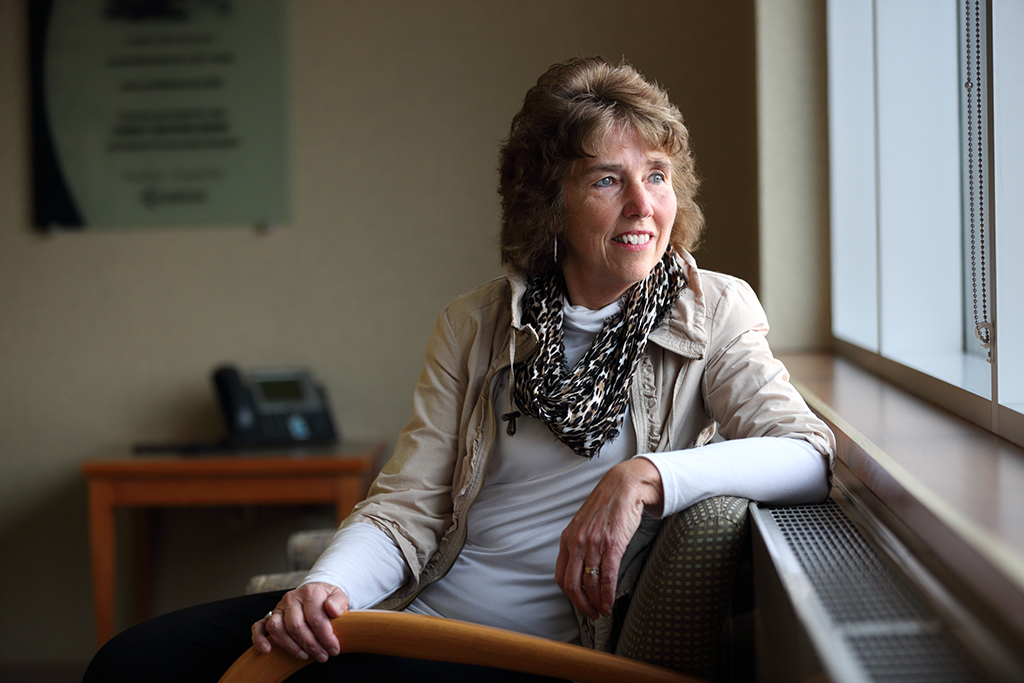
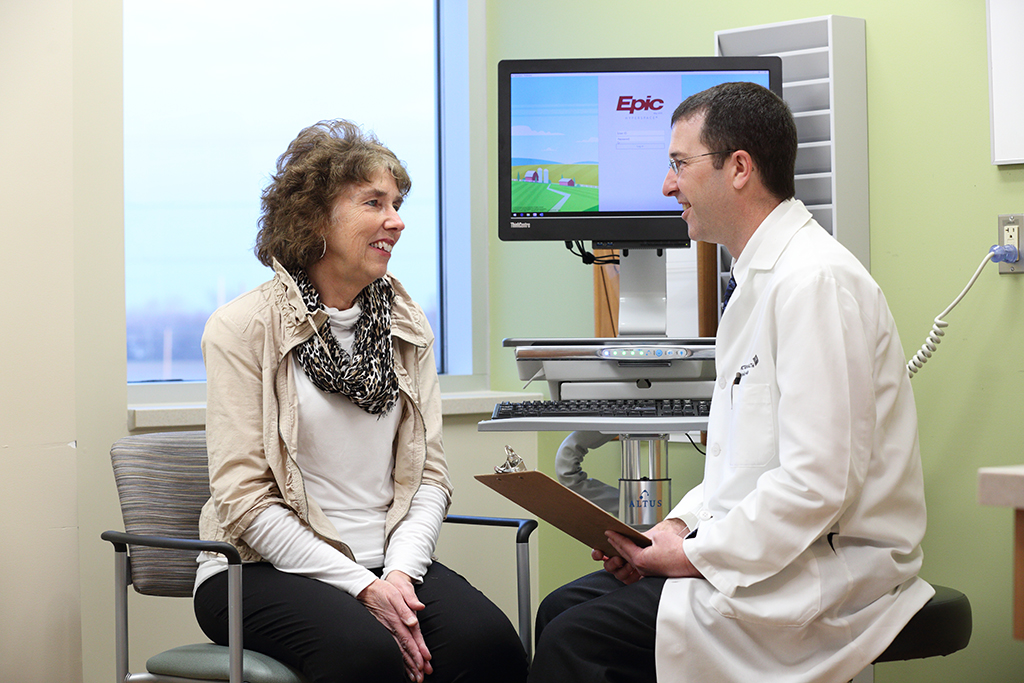
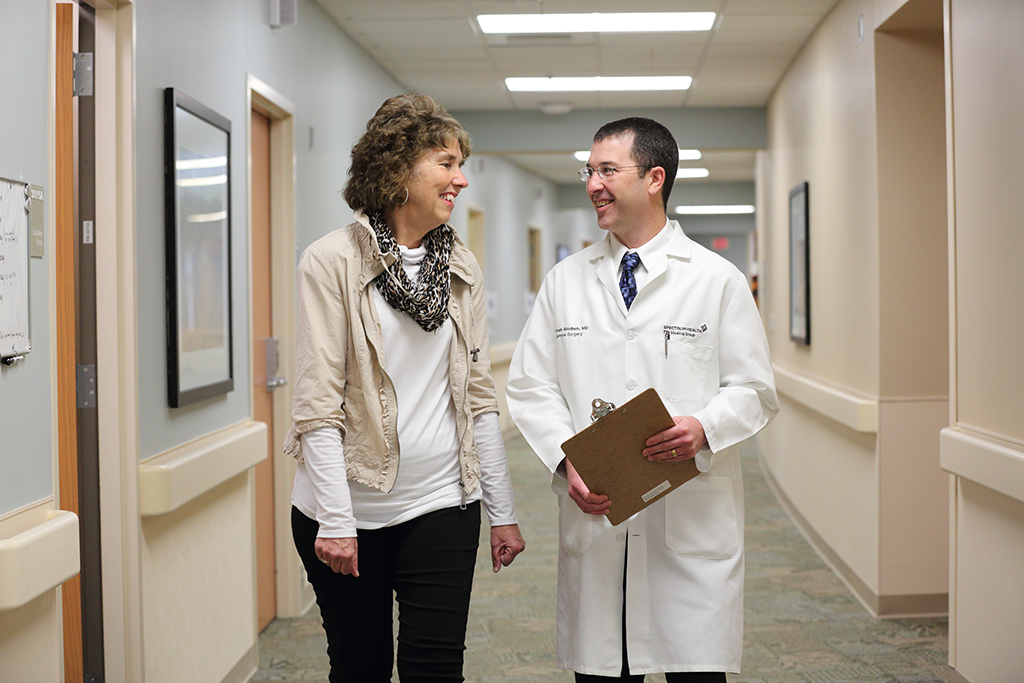
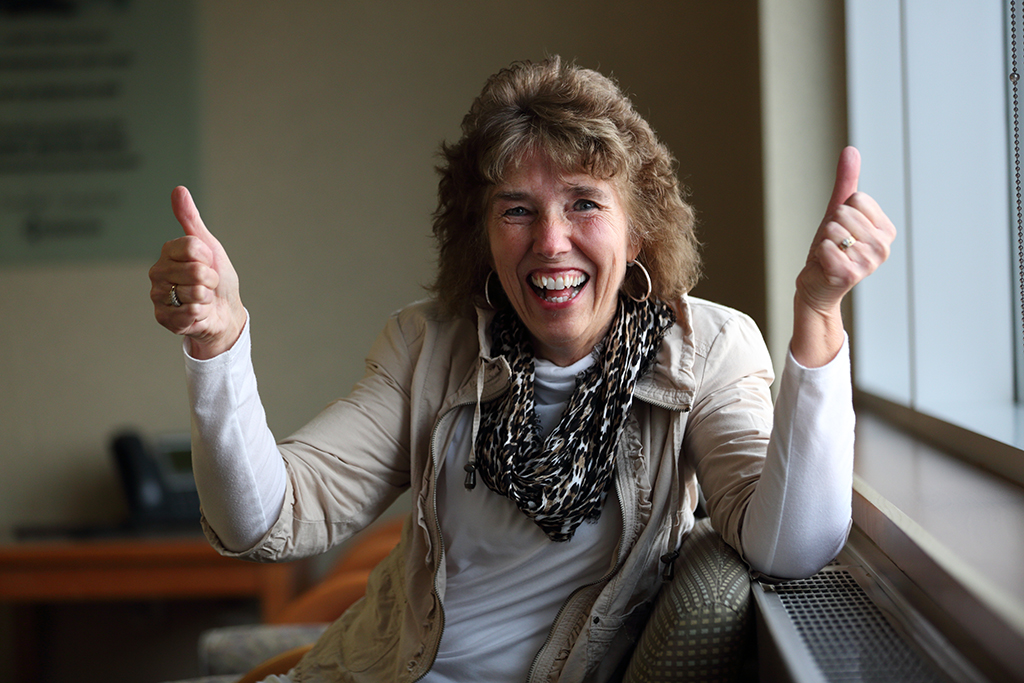

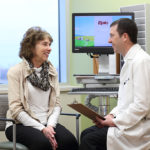
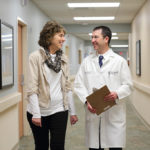

 /a>
/a>
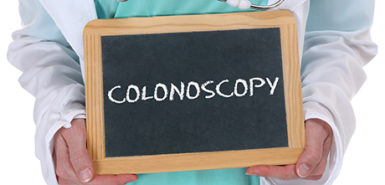 /a>
/a>
 /a>
/a>